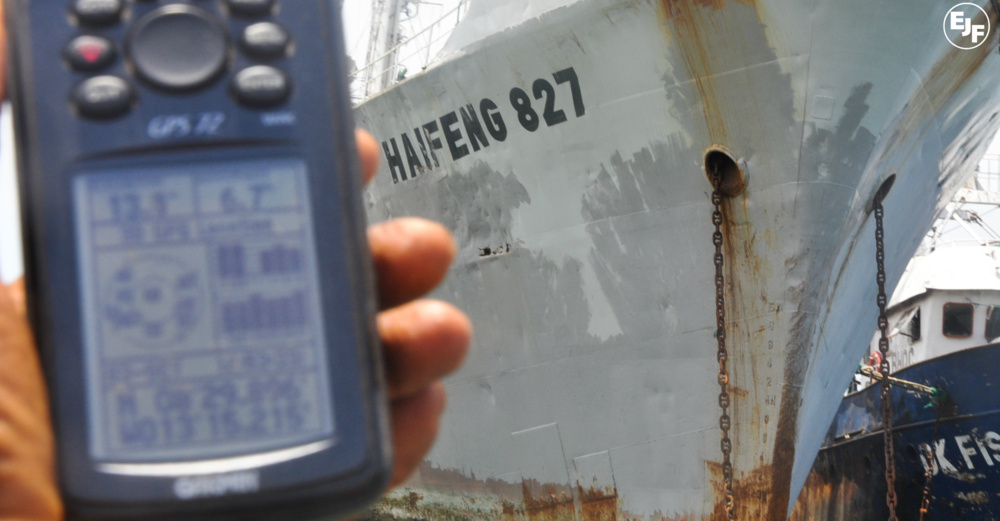
Combating pirate fishing with the power of technology
Technology is changing the way NGOs work - how they gather and process information in the field, present data to industry and governments, and engage with the public. New technologies allow information sharing, participation and collaboration on an unprecedented scale. At the Environmental Justice Foundation (EJF), we have seen first-hand the benefits of technology in our work to combat IUU (Illegal, Unreported and Unregulated), or ‘pirate’ fishing.
EJF’s efforts are focused on West African countries such as Sierra Leone and Liberia, where pirate fishing is particularly prevalent and destructive. By depleting fish stocks, IUU fishing fleets severely compromise the food security and livelihoods of coastal communities, which rely on fish as their main source of protein and revenue. EJF operates a community surveillance initiative in Liberia and Sierra Leone, working directly with coastal communities in remote areas where government enforcement efforts are almost entirely absent. EJF’s local field staff respond to reports from fishers who witness pirate fishing and with the help of EJF’s motor boat, we can rapidly locate offending vessels at sea, far beyond the gaze of any government patrol vessels. EJF staff document illegal activities and gather geo-tagged film and photos to identify vessels and to give their position – most often in the inshore areas that are designated for local, small-scale fishermen only and not the foreign-owned industrial illegal trawlers that all too often frequent these waters.
The key feature of this project is the use of simple technologies and communication, which enable coastal communities to make a new and significant contribution to the fight against pirate fishing. With affordable cameras, GPS and mobile phones and credits provided, the fishers have proven to be key participants in the monitoring and reporting of illegal fishing that has contributed to the arrest, sanctions and deterrence of illegal trawlers.
In recent years, new technologies have been further expanding the scope of what can be achieved in the fight against pirate fishing. EJF’s Fisheries Information Network (FIN) uses a satellite tracking system that can observe vessels fitted with an Automatic Identification System (AIS) device from anywhere in the world. Combined with information provided by States and other stakeholders, EJF investigates activities of fishing vessels and fish-carriers across the Gulf of Guinea and beyond. Since 2011, together with the community surveillance project, EJF has engaged over 20 different States to investigate vessels’ activities, with more than 40 cases being brought to the attention of coastal, flag and port States.
Not so long ago, communities were vulnerable and disempowered, daily witnesses to the plunder of the coastal waters they rely upon, but unable to act against the perpetrators. All that has changed - the information and images gathered by these same fishermen in dug-out canoes can now find its way onto the desks of decision makers in the EU and to national capitals around the world. From Panama to South Korea, community surveillance is making its mark. This gives local people a voice, enabling them to defend the natural environments upon which they rely. Information gathered by West African fishing communities and coordinated by EJF has led to the imposition of over US $1m in fines and the detention of a number of fishing vessels and their seafood cargo in ports around the world. A new age of enforcement has surely begun.
SIGN UP FOR OUR EMAILS AND STAY UP TO DATE WITH EJF